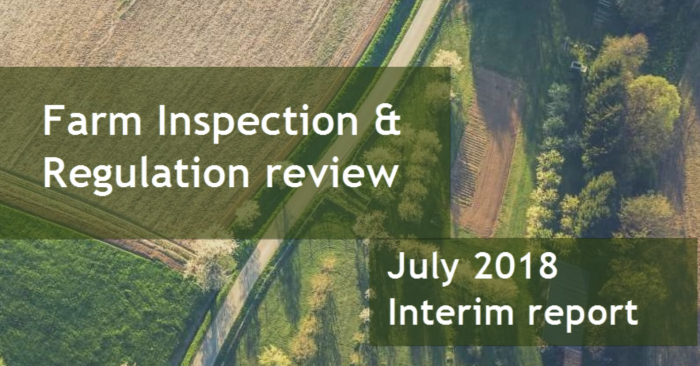The way farming is regulated will have to change after we leave the EU to take into account new trade considerations, according to an interim report published today.
The interim report by Dame Glenys Stacey, Chair of the Farm Inspection and Regulation Review (FIRR), recommends major simplification in how we regulate farming. Commissioned by Defra Secretary Michael Gove in February, it sets out the problems with the current system of farm regulation, largely borne out of the requirements of the Common Agricultural Policy (CAP).
It finds that farmers and regulators alike are exasperated by the demands of regulation, which are unduly precise and inflexible. As we leave the EU, there is an opportunity to rebuild trust between the regulating authority and the farmer, which would maintain high standard on farms and support farmers to comply, it says.
The Review estimates 150,000 farm inspections are carried out each year by multiple agencies such as the Rural Payments Agency, the Animal and Plant Health Agency, Natural England and local authorities just to meet the strict criteria of the CAP.
The report discusses the opportunity to use a ‘single field force’ to conduct more meaningful farm inspections, as part of a more flexible, proportionate regulation. A simpler and more targeted regulatory system would be an immensely powerful tool in achieving the government’s environmental objectives and supporting farmers to uphold standards, it says.
The report also addresses the Government’s desire for ‘a richer and better environment, and better animal health and welfare, with a better grip on endemic animal disease’.
“The way we regulate needs to change as a result. The Government wants a more dynamic and self-reliant industry, and the way we regulate should help rather than get in the way unnecessarily,” it says.
As we leave the EU, trade considerations will be ‘exceptionally important in future’, the report adds, a reference to the Government’s desire to forge new trade deals and the questions this raises about maintaining UK standards.
“The regulator will need to hone, nurture and adapt standards to best deliver the aims of regulation, with one of those aims being to facilitate agricultural trade. Upon leaving the European Union, the way we regulate needs to be flexible and adaptive, and entirely in tune with the market,” the report states.
The report concludes that farming legislation has evolved in a ‘piecemeal way’ over many years. “Farmers face an unduly extensive and complex array of regulatory requirements. Some of those requirements seem illogical as well as inflexible, bringing farming regulation into disrepute,” it says.
The Review is due to complete its work by the end of this year and will publish a final report with recommendations.
Dame Glenys said: “Farmers have long been frustrated by the way farms are regulated. As we leave the EU and as government sets out new expectations for farming, we have a unique opportunity to transform the way we do things.
“This interim report sets out a direction of travel for farming regulation. We do not suggest piecemeal adjustments. Instead we think more radical change is necessary, to make the most of the opportunity we have now, and to best enable farmers to produce and market food while also meeting the other expectations government has of farming.’
Mr Gove said: “Dame Glenys makes a thorough and compelling case for fundamental changes to the existing inspection and regulation framework. The regulation on farmers under the CAP has imposed an extra bureaucratic headache on farmers, with no room to recognise innovation or good intent.”




